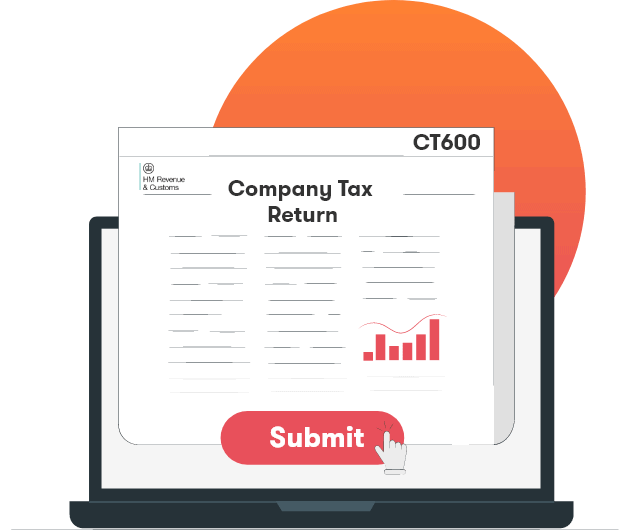
Corporation tax return (CT600)
All Limited Companies are required to submit a Corporation tax return, also known as the CT600 form, to HMRC within 12 months following the end of the financial year.
To begin this process, you must inform HMRC that your company is liable for corporation tax. Once your company falls under this tax category, you need to determine the profit earned during each accounting period and calculate the corresponding tax amount.
It’s important to note that the maximum duration for an accounting period is 12 months. Therefore, although the CT600 form is not due for another year, the tax payment must be made within nine months and one day after the end of the financial year. Failure to meet these deadlines may result in penalties and potential interest charges. To confirm the exact fiscal year end of your company, you can refer to the Companies House website.
Corporation Tax, like various other taxes in the UK, can be intricate. Seeking assistance from a professional tax advisor can aid in developing strategies to minimize your tax obligations.
Individuals, sole traders, and partnerships are exempt from paying Corporation Tax but are required to submit self-assessment tax returns, also known as Personal Tax Returns or SA302 forms.


Penalties for late filing of the CT600 company tax return
If you miss the deadline to file your company tax return, fines can mount up very quickly, and HMRC may charge you one of the following fines for up to a year:
- One day late: £100 penalty
- Three months late: Another £100 penalty
- Six months late: An additional penalty of 10% of your estimated corporation tax bill. HMRC makes this estimate, and you are unable to appeal against it.
- Twelve months late: Another 10% penalty on your estimated corporation tax bill.
